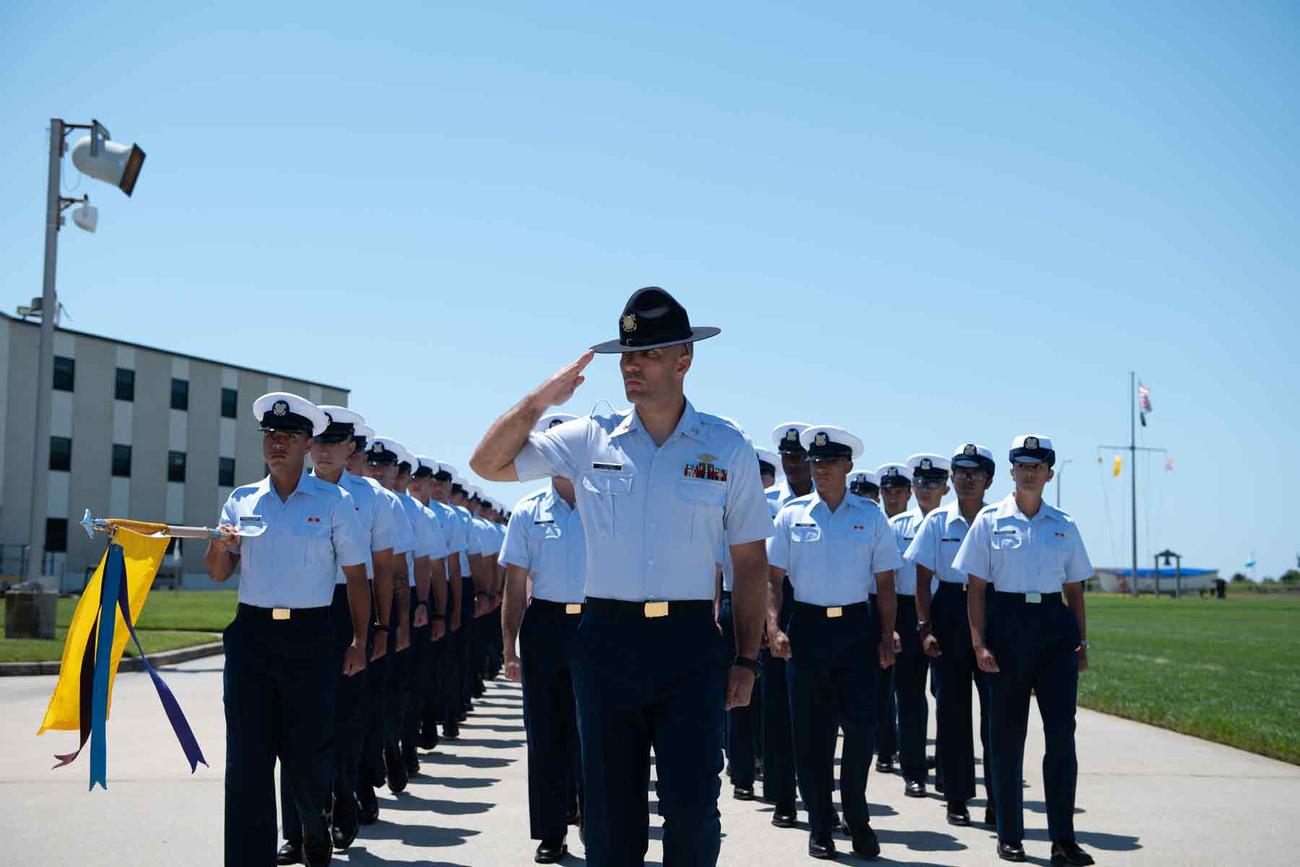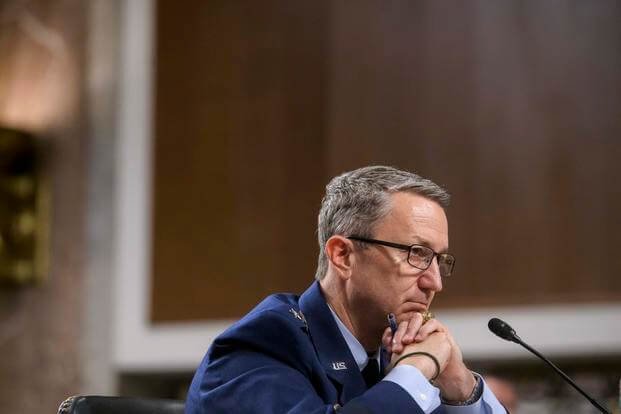
Marketing and aggressive investment in recruiters and stations helped the Coast Guard meet its enlisted recruiting goals in fiscal 2024, the first time since 2018, according to the service.
Coast Guard officials said Tuesday they recruited 4,442 active-duty enlisted personnel and 737 reservists as of Sept. 30, exceeding the respective goals of 4,200 and 725 by 6% and 2%.
The new accessions halted a problematic trend that began in 2019, when the service began falling short of its goals by an average of 20%.
Read Next: Commander of Army’s Explosive Ordnance Disposal School Was Fired in July
Capt. Ben Keffer, commander of Coast Guard Recruiting Command, said Wednesday that the credit goes largely to the service’s 370 recruiters, as well as Coast Guard leadership, which has heavily invested in recruiting to address the service’s overall enlisted workforce shortage of 10%.
“We actually recruited more people than we lost in terms of retention last year. So that is a positive trend, and we’re going to look to continue that,” Keffer said during an interview with Military.com.
To address the shortfalls, the Coast Guard launched numerous personnel initiatives to attract recruits, offering incentives such as shorter enlistments and increased tuition assistance.
It later rolled out signing bonuses for undermanned ratings, expanded its Junior Reserve Officers’ Training Corps and created a dedicated rating for recruiters, now known as talent acquisition specialists.
The service added 100 additional recruiters, and in the last 13 months, it opened 13 new recruiting stations, according to Keffer.
“It’s really made a big difference for us. One of the battles we face is a brand awareness problem, having an understanding of what the Coast Guard is and does,” Keffer said. “[We needed to look at messaging] when we’re interacting with young people looking to join the military.”
In meeting its goals, the Coast Guard joins the five Defense Department services, which all met their targets for fiscal 2024, albeit not by large margins, especially for the Army and the Air Force. The Department of Homeland Security oversees the Coast Guard.
With the new recruits and officer accessions, the Coast Guard now has 39,903 active-duty personnel. In 2023, it estimated that it was roughly 3,500 members short to meet the mission and, to handle that gap, planned to close 29 small boat stations and remove 10 cutters from active service.
“We will temporarily adjust operations to prioritize our lifesaving missions, national security and protection of the Marine Transportation System,” senior officials wrote in a statement accompanying the Assignment Year 2024 Force Alignment Initiative, published in October 2023.
With the new accessions, the 2025 Force Alignment Initiative was more upbeat, saying the new personnel could help Coast Guard leaders be “more strategic” in assigning personnel and adjusting operations.
Nonetheless, the Coast Guard planned to remove one cutter and four patrol boats from service and reassign personnel to fill vacancies. According to the service, the Coast Guard’s biggest gaps are at the E-4 and E-5 ranks in operations specialist and machinery technician ratings.
Keffer said for 2025, the service hopes to recruit 4,300 active-duty personnel, building on the success of 2024 by opening a new recruiting station in Pittsburgh and actively engaging young people in locations where there is “an interest in joining the military.”
“We are focused on recruiting the number necessary to close that workforce gap,” Keffer said.
Regarding the officer ranks, Coast Guard Recruiting Command exceeded its 2024 goals by nearly 4% for officer candidates and 8% for direct commission.
Keffer said the Coast Guard continues to see success recruiting women. Nearly 600 applications came from women. Minorities accounted for more than 38% of all new recruits.
“We actually recruited in 2024 more underrepresented minority accessions than in any year that we’ve had data to show. Back to the early ’70s, this was our most productive year for recruiting a very diverse pool of new accessions into the enlisted active-duty force,” Keffer said.
According to service data, nearly 84% of the Coast Guard active-duty force are male while 16% are female. Minorities make up nearly 32% of the ranks. Data provided by the service showed that 16.5% said they are Hispanic or Latino; 2.6% are Native American, Alaskan or Hawaiian Native or Pacific Islander; 5.8% are Black; 2.2% are Asian; and 4.7% are multiracial.
Related: Coast Guard Turns Eye Toward Recruitment, Retention as It Misses Goals


















